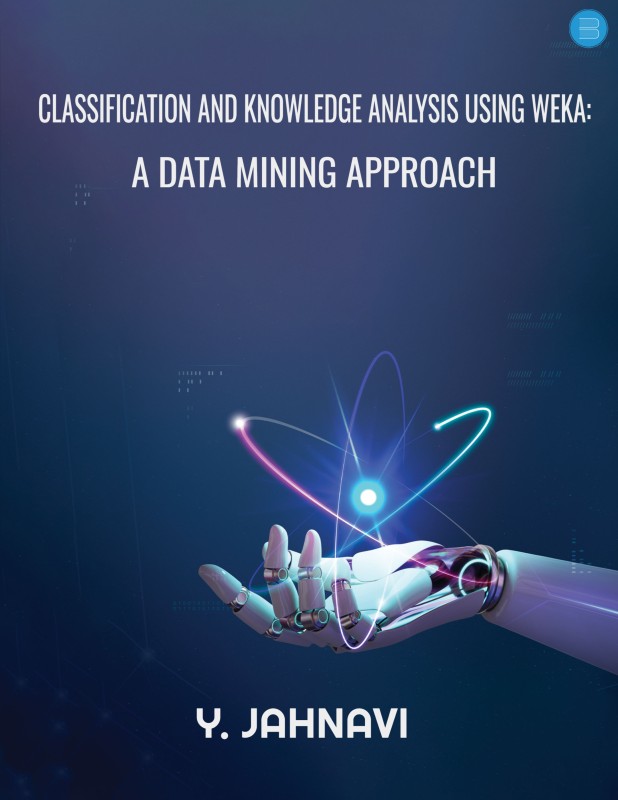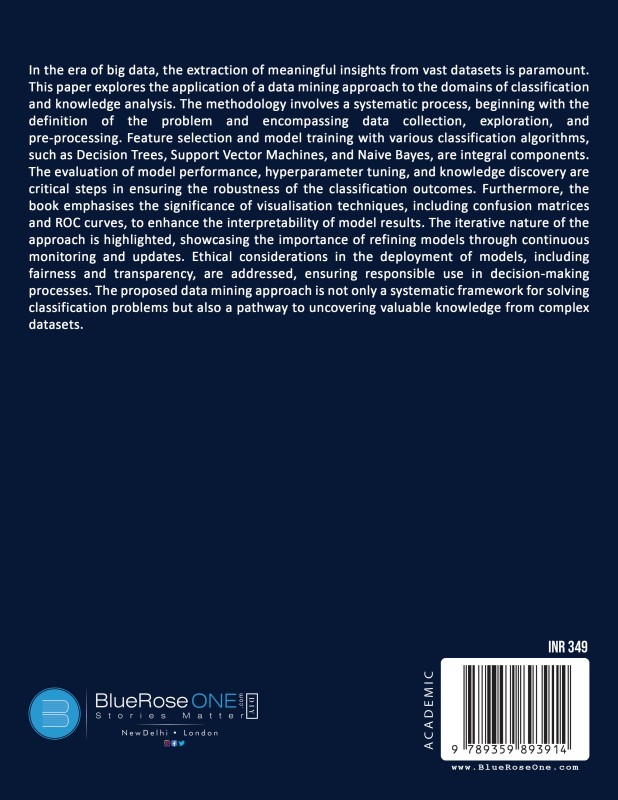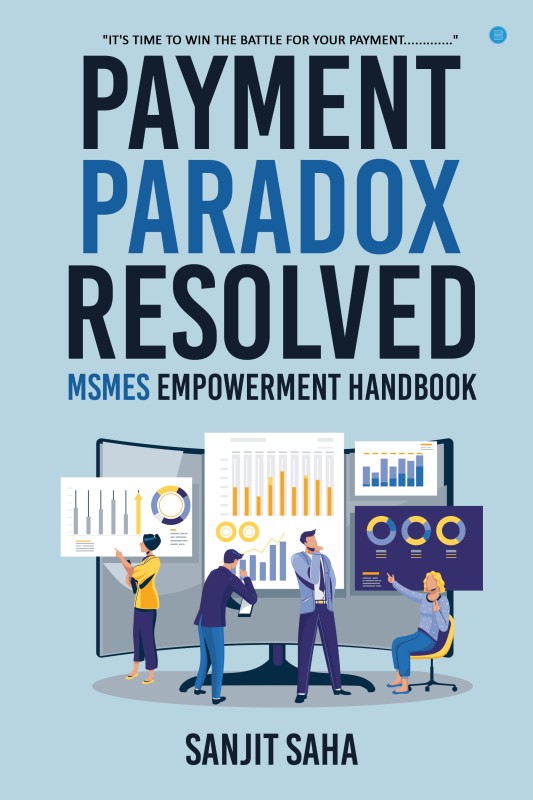CLASSIFICATION AND KNOWLEDGE ANALYSIS USING WEKA: A DATA MINING APPROACH
by Y. Jahnavi | 21-Nov-2023
(0)
In the era of big data, the extraction of meaningful insights from vast datasets is paramount. This paper explores the application of a data mining approach to the domains of classification and knowledge analysis. The methodology involves a system...
Original
Books
Fastest
Delivery
7-day
Replacement
Book Details
- Language : English
- Pages : 151
- ISBN : 9789359893914
- Genre: ACADEMIC
- Size : 8.5" x 11"
- Binding Type : PAPERBACK
- Age Group: + Years
- Paper Type : WHITE PAPER
- Interior : BLACK & WHITE
- Cover : GLOSS FINISH
- Book Type : PAPERBACK
- Tags : CLASSIFICATION AND KNOWLEDGE ANALYSIS USING WEKA: A DATA MINING APPROACH
-
Best Sellers Rank :
#1179 in Academics
#7594 in Global
Reviews
There are no reviews for this product yet.

 USD
($)
USD
($) AUD
($)
AUD
($) CAD
($)
CAD
($) EUR
(€)
EUR
(€) HKD
($)
HKD
($) MYR
(RM)
MYR
(RM) GBP
(£)
GBP
(£) SGD
($)
SGD
($)








